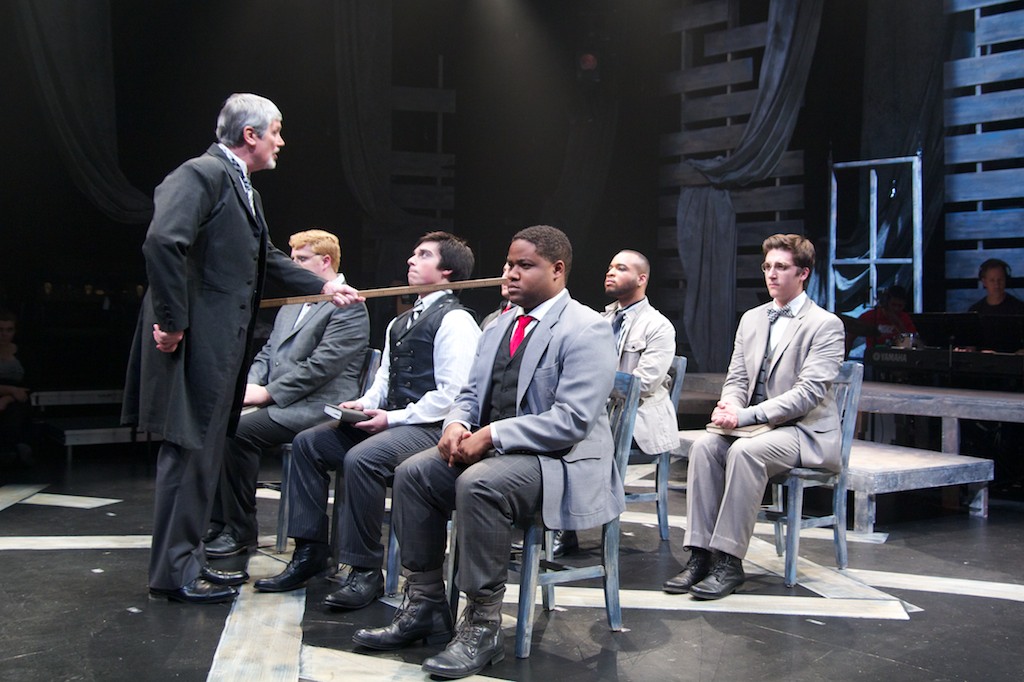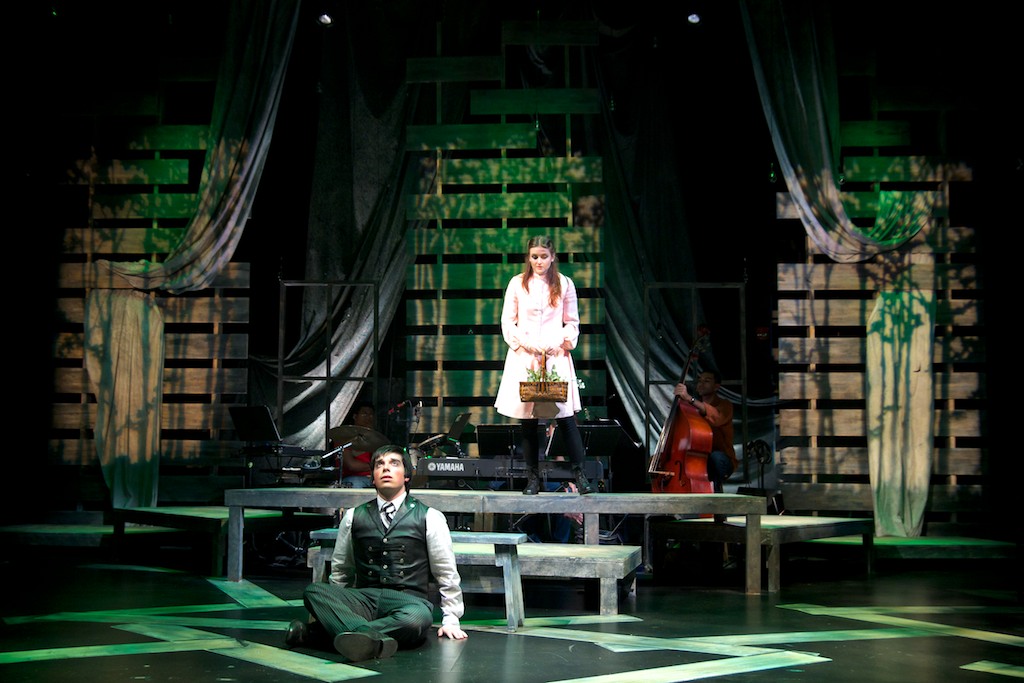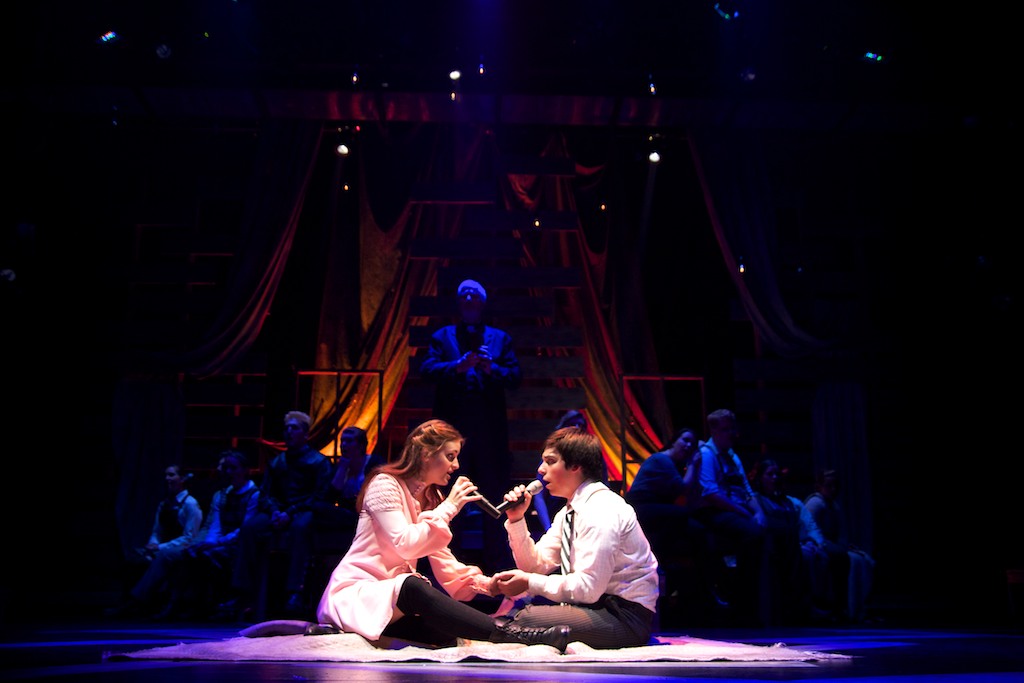
UNC-Charlotte’s Department of Theatre tackled Wedekind’s controversial “Spring Awakening”
This past weekend UNC-Charlotte theatre students tackled a difficult play both in content and technical ability with finesse and talent. The play, “Spring Awakening” a musical adaptation of Frank Wedekind’s 1891 controversial “Frűlings Erwachen,” is an expressionist portrait of teenage sexuality amidst bourgeois repression of late nineteenth century German society. Wedekind wanted to expose the hypocrisy of bourgeoisie morals and approach to sexuality, revealing the tragedies that could result from repression and social pretense. Wedekind included truly scandalous content, portraying his characters’ sexuality, homoeroticism, and masturbation on stage.
UNC-Charlotte’s Department of Theatre performed the 2006 Broadway musical adaptation by playwright Steven Sater and singer/composer Duncan Sheik, which won eight Tony Awards, including Best Musical. While much of Sater and Sheik’s lyrics conveying the confusion, angst and experimentation of the teenage years came across vividly, the cast of “Spring Awakening” was hampered by the choice to perform the play in a black box theater with live music. This choice of venue and the hand-held microphones made the upbeat full-cast ensembles deafening and muffled far too many of the lyrics. The venue was appropriate, however, for the intimate and provocative moments where Wendla and Melchior make love in the hayloft, or Hanschen and Ernst engage in homosexual experimentation. The cast truly shined in the Second Act, finding their cohesion with the song “Totally Fucked,” which fully expressed the teenage rebellious spirit and had the actors stomping and jumping in careless abandon.
Wendla, actress Emma Curtis, and Melchior, actor Brian Barrows, in “Spring Awakening” at UNC Charlotte. Photograph by Gordon Olson
Notable standouts of the production include actress Emma Curtis, who played Wendla, and Lucas King, who played Hanschen. Curtis aptly captured the ignorance, fear and curiosity of Wendla’s character as she sought to grow up and yet retain her innocence, singing her ballads in a wistful soprano. King was all mischievous pride in appropriately styled lederhosen, charming a kiss from Ernst and slyly waiting as the cat to skim the cream off the top.
In a world where teenage sexuality has largely lost its taboo status, and R-rated movies abound, “Spring Awakening” reminds us that society was not always so open. In fact, after Wedekind’s play premiered in English in 1917 in New York City it was banned and deemed pornographic for the next several decades, not reappearing again until 1978. But for all our society’s sexualized pop culture and openness, the themes of “Spring Awakening” still have relevance in regards to the repression of self-identity and sexuality that continues today, and as particular kinds of sexuality are continuing to face discrimination.
Wendla, actress Emma Curtis, and Melchior, actor Brian Barrows, in “Spring Awakening” at UNC Charlotte. Photograph by Gordon Olson
Recent Content
-
Artsarticle ·
-
Artsarticle ·
-
Artsarticle ·


